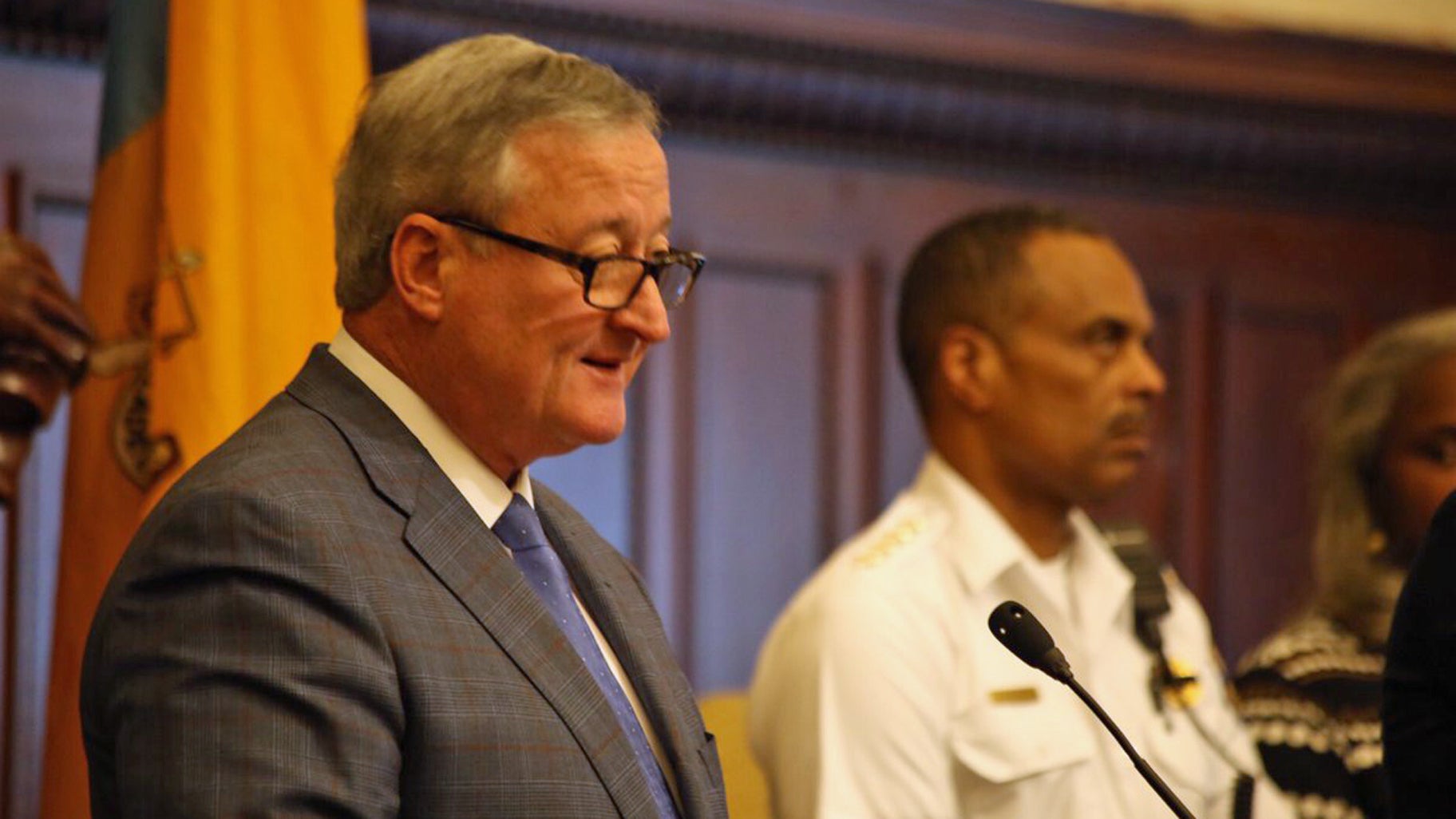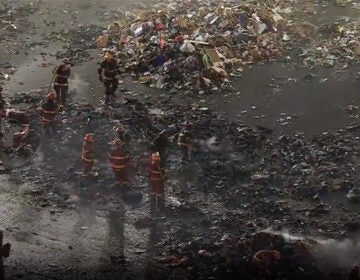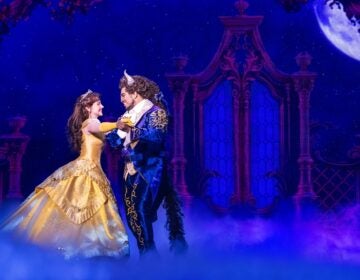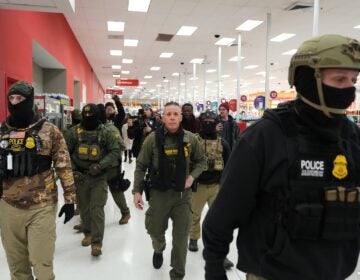Philly leaders proud of city response to convention, protests
Listen
Philadelphia Mayor Jim Kenney addresses media as Police Commissioner Richard Ross looks on (Image via twitter.com/PhillyMayor)
As Democratic delegates say goodbye to Philadelphia, the city’s top officials are starting to crunch the numbers.
While planners are still calculating the economic impact of the Democratic National Convention, the mayor and police commissioner said Friday they are proud that no major incidents occurred while the national spotlight was on the city.
“We had great press coverage of all the city has to offer, which I’m sure will drive tourism for many years to come,” Kenney told reporters. “I want to thank Philadelphians for being such wonderful hosts. I had so many people stop me on the streets to say how friendly and fun Philadelphians really are.”
On several occasions, Kenney said, delegates talked to him about traveling beyond hotels and the Wells Fargo Center.
“I do know, in addition to Center City restaurants, people were telling me how fun they had in South Philly, fun they had in West Philly, people in Northern Liberties, Fishtown,” Kenney said. “They were getting around to different neighborhood other than just downtown.”
As speakers addressed delegates in the arena, protests raged on the streets. About 13,000 demonstrators took part in 60 or so protests, according to Police Commissioner Richard Ross. Only 11 were charged with breaching a Secret Service fence, while 106 were fined for noncriminal offenses such as disorderly conduct.
Twelve police officers were injured, but it mostly from heat exhaustion.
“They were some very long, long hours in some pretty difficult circumstances, primarily the heat,” Ross said. “I mean, that heat was excessive on at least a couple of those days. They did an absolutely remarkable job, made us all proud.”
Asked whether the temporary ban on parking in the middle of South Broad would stay, as some residents have asked, Kenney started with a comment about his roots.
“Well, I’m a South Philadelphia native, so, uh yeah,” he said of the long tradition of allowing vehicles to park in the middle of South Broad Street. Kenney said if the city does plan to re-evaluate the ritual, the talks will involve many parties.
“It involves two different Council districts, it involves neighborhood groups that have a say. If anything is to move forward like that, it’s going to have to be a very comprehensive discussion for all of the people who live in that community,” he said.
WHYY is your source for fact-based, in-depth journalism and information. As a nonprofit organization, we rely on financial support from readers like you. Please give today.




